Derry Girls season 3 review: A fantastic conclusion to one of the most underrated TV shows
The final season of Derry Girls is equal parts hilarious and heartwarming
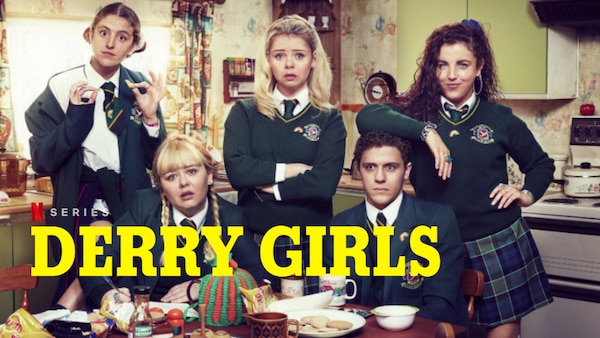
Last Updated: 10.11 AM, Oct 08, 2022
Story: Erin (Saoirse-Monica Jackson), Michelle (Jamie-Lee O'Donnell), Orla (Louisa Harland), Clare (Nicola Coughlan), and James (Dylan Llewellyn) return for another season of Derry Girls. Their hilarious misadventures resume in the small Northern Irish town of Londonderry aka Derry in the 90s, leading up to the Good Friday Agreement between the Irish and the British governments.
Review: There is a dearth of new and quality comedy TV shows these days, but shows such as Ted Lasso and Sex Education have become outliers of sorts in how they maintained popularity and quality in an age when serious and gritty TV programmes are finding a greater degree of success. Another one of these outliers is the British TV series, Derry Girls. The comedy is a satire on contemporary socio-politics as well as the drawn-out peace process in Northern Ireland during the 90s. What makes the show special is the fact that its political subtext is told through the lives of school girls in the town of Derry.
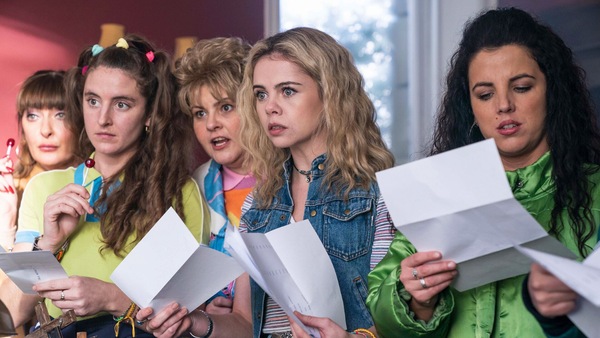
Season three of Derry Girls does not skip a beat by picking up from where season two ended and dives straight into the various misadventures of the girls (and James of course). The first episode features a guest appearance by Liam Nesson, and it is comfortably the best of the season, and Nesson is instrumental in its success. The following episodes may lack the same quality, but it is a reflection of how good season three episode one is. As in the case of previous seasons, each episode follows the various obstacles the protagonists must overcome.
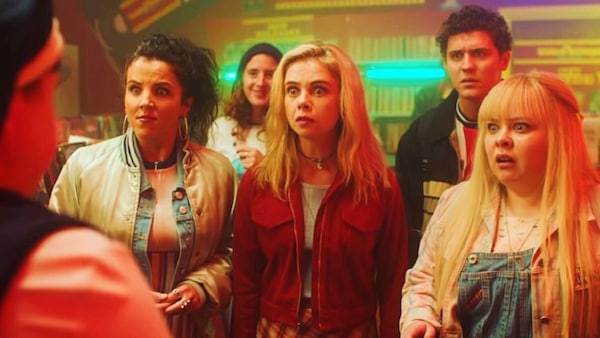
There is also a significant focus on the older characters, in fact, episode five primarily focuses on Mary (Tara Lynne O'Neill) and her sister Sarah (Kathy Kiera Clarke), and features flashbacks of their own high school days in 70s Northern Ireland. As one would expect from the series, there is a social commentary of the time period layered into the subtext. The end of The Troubles and the imminent Good Friday Agreement is set against the backdrop of the overall story. However, the series continues to be devoid of an overarching plot, which would have certainly created more intrigue at the end of each episode.
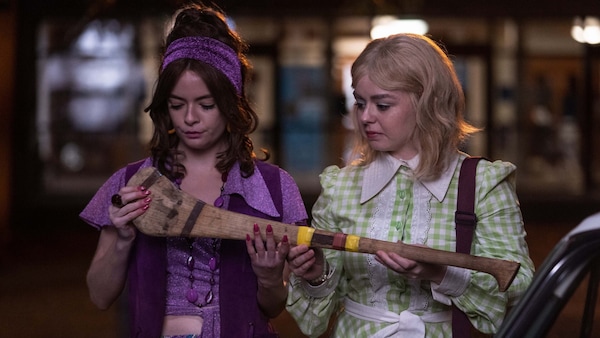
The show’s greatest strengths continue to be its unique set of characters and their hilarious one-liners. Siobhán McSweeney’s Sister Michael has mastered this to perfection and is probably one of the story’s underrated characters. Her interactions with the girls are always the perfect recipe for her iconic deadpan quips. Some of the other supporting characters such as Colm McCool, essayed by Kevin McAlee, also offer excellent comedic subplots, as does Art Campion in his role as Father Peter. Whereas the back and forth between Gerry (Tommy Tiernan) and his father-in-law Joe (Ian McElhinney) remains hilarious as ever.
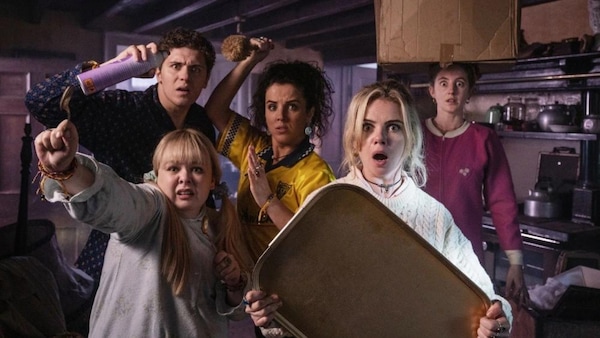
The finale is a fitting conclusion for the series and its ending firmly focuses on the ceasefire and the eventual Good Friday Agreement. The season also comes full circle from the first episode with ‘hope’ being the central theme of the series. The use of archival footage to explore the various real-life incidents in Northern Ireland adds another dimension to the overall story. The final scenes with Dreams by The Cranberries playing in the background is probably the apt choice for a soundtrack. There is also an emphasis on the referendum that helped seal the Good Friday Agreement. These are intended to imbue a sense of understanding for those who are unaware of the Irish conflict.
Verdict: Derry Girls concluded its three season-run with a season which is equal parts hilarious and equal parts heartwarming. It is one of the best satires in recent years and wonderfully explores the socio-political and cultural dynamics of Ireland and the UK.
WHERE
TO WATCH
Subscribe to our newsletter for top content, delivered fast.

